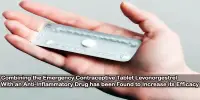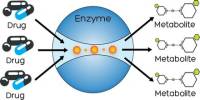Up to 45 percent of patients with Duchenne muscular dystrophy (DMD), a chronic muscle-wasting condition, may benefit from a new “cocktail” medicine being developed at the University of Alberta.
Duchenne muscular dystrophy is a severe, progressive muscle-wasting condition that causes movement difficulties, the need for assisted ventilation, and eventually death. Mutations in the DMD gene (which codes for dystrophin) cause the illness by preventing dystrophin synthesis in muscle.
A team lead by Toshifumi Yokota, a professor of medical genetics in the Faculty of Medicine & Dentistry, developed and is currently studying a cocktail of six medicines that potentially treat nearly half of DMD patients with just one medication.
DMD affects six persons out of every 100,000, mostly males. People with DMD have mutations in dystrophin, the body’s biggest gene and a protein required for cell survival. Dystrophin has 79 exons, and if even one is absent, the body is unable to manufacture the protein, causing muscle degeneration.
Duchenne muscular dystrophy (DMD) is a muscle-wasting disease that progresses rapidly. The early signs are difficulty climbing stairs, a waddling gate, and frequent falls, which appear around the age of 2–3 years.
Most patients use a wheelchair around the age of 10–12 and require assistance ventilation by the age of 20. Most DMD patients die of cardiac and/or respiratory failure between the ages of 20 and 40 if they receive the best possible care.
Although there is no cure for DMD, a new family of medications termed “exon skipping” may help. It serves as a Band-Aid over the exons that are missing, allowing the body to bypass the broken instructions and manufacture the protein needed to restore muscle tissue.
Each of the previously developed exon-skipping molecules has been able to treat only around 10 percent of DMD patients because they have different mutations to their exons in different locations within the gene.
Toshifumi Yokota
Other related medicines, such as viltolarsen, which is based on Yokota’s study, have already been approved by the US Food and Drug Administration. However, each has a restricted application. Many more patients could benefit from this novel “cocktail” treatment.
“Each of the previously developed exon-skipping molecules has been able to treat only around 10 percent of DMD patients because they have different mutations to their exons in different locations within the gene,” said Yokota, who is also the Friends of Garrett Cumming Research & Muscular Dystrophy Canada Endowed Research Chair.
“Our approach is to skip over 11 exons all at once, which would allow us to treat approximately 45 percent of patients,” he explained.
The findings were published in the Proceedings of the National Academy of Sciences this week.
Yokota’s team tested the new synthetic medicine in test tubes and animals using patient-derived muscle tissue. They discovered dystrophin production, muscular growth, and better heart function.
Although DMD causes severe skeletal body weakness, the majority of patients die from heart failure. According to Yokota, existing exon-skipping medicines do not permeate the heart muscle, a problem that this novel combination solves.
“Our cocktail combines the antisense oligonucleotides with a new peptide which allows the drug to penetrate the heart muscle,” he said.
Toxicology testing and regulatory approvals are still required before clinical trials can be conducted. Yokota and his colleagues recently formed a firm to assist with the drug’s commercialization.
















